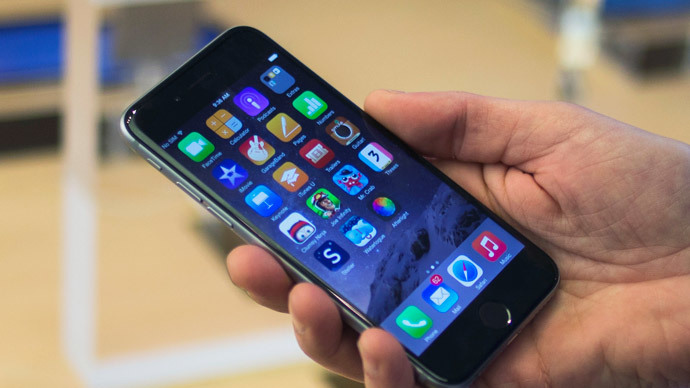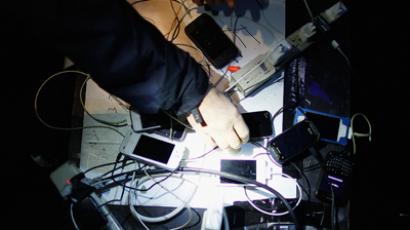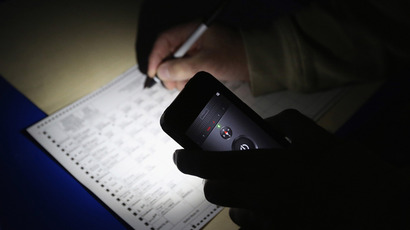Free at last: Deal allowing US customers to unlock cell phones comes into force

Cell phone owners can now unlock their mobile devices to switch to another, compatible wireless provider ‒ as long as the consumer meets a specific set of criteria. The ability is the result of an agreement between the industry and the US government.
“A new era of choice for cell phone users has begun,” the Federal Communications Commission trumpeted on its website, announcing the implementation of the new unlocking policies. “The new standards, which are fully in effect among all nationwide mobile service providers as of Feb. 11, 2015, give consumers greater freedom and flexibility while increasing incentives for service providers to innovate.”
Customers who meet the criteria laid out in standards adopted by CTIA-The Wireless Association will be able to unlock their devices and switch to another wireless provider, as long as the systems are compatible.
Want to unlock your phone? Starting today, just ask your carrier http://t.co/pCWhwZ0pRo#linux#news
— Alastair Montgomery (@bigboymademe) February 11, 2015
The principles that the carriers agreed to are: To post their policies on their websites; allow unlocking of a device after the contract has been fulfilled for postpaid plans; allow unlocking no later than one year after the initial activation of a prepaid phone; notify customers when their devices are eligible for unlocking; unlock devices within two business days of receiving a request to do so; and unlock mobile devices for deployed military personnel who are customers in good standing.
Compatibility is a major caveat to the agreement. There are two basic radio technologies that cell phones rely on: CDMA (Code Division Multiple Access) and GSM (Global System for Mobiles), and they are not compatible with each other. In the US, Sprint, Verizon and US Cellular use CDMA for their infrastructure, while AT&T and T-Mobile use GSM. Much of the rest of the world also uses GSM technology.
How To Unlock Alcatel One Touch / Fierce 2 / Evolve / Idol / Pop / AT&T / T-mobile / Rogers / etc. http://t.co/6WlnJFeZXM
— Unlock River (@RiverUnlock) February 12, 2015
The practice of unlocking a smartphone without a carrier’s permission was criminalized in the US in 2012, after the Librarian of Congress removed the exemption that allowed users to unlock their phones from the Digital Millennium Copyright Act. After a three-month grace period, unilaterally freeing a mobile phone from the restrictions that prevent it from working on other carriers’ networks was considered copyright infringement.
In response, over 114,000 people signed a petition that began in January 2013 on the White House website asking the government to restore consumers’ ability to unlock cell phones. The major wireless carriers signed an agreement with the FCC towards the end of that year to create criteria that customers must meet to unlock their phones. In July 2014, Congress passed the Unlocking Consumer Choice and Wireless Competition Act, which reinstated the copyright exemption. The president signed the bill the following month.
As of Wednesday, the carriers are in compliance with the agreement and the law. The deal covers both cell phones and tablets.














